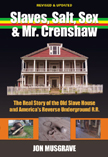Section 1. After one year from the ratification of this article the manufacture, sale, or transportation of intoxicating liquors within, the importation thereof into, or the exportation thereof from the United States and all territory subject to the jurisdiction thereof for beverage purposes is hereby prohibited.
Section 2. The Congress and the several States shall have concurrent power to enforce this article by appropriate legislation.
Section 3. This article shall be inoperative unless it shall have been ratified as an amendment to the Constitution by the legislatures of the several States, as provided in the Constitution, within seven years from the date of the submission hereof to the States by the Congress.
Congress passed the Volstead Act implementing the amendment on Oct. 28, 1919. President Woodrow Wilson vetoed the bill, but Congress overrode the veto and the law went into effect Jan. 17, 1920.
The same day Illinois became the 26th state to ratify the amendment, so did lawmakers in Arkansas (25), Indiana (27) and Missouri (28). Five more states ratified it the next day (Alabama, Colorado, Iowa, New Hampshire and Oregon), and another five did so on the 16th putting it over the hump needed for the super-majority. (North Carolina, Utah, Nebraska, Missouri and Alabama). In all 46 states ratified the amendment. Only Connecticut and Rhode Island did not.
For a basic overview of Prohibition in the Prairie State, check out Bootlegging in Illinois from the April 2001 edition of Country Living.
To say it was a failure understates the problem. Congress offered the 21st Amendment to repeal it which states ratified quickly in 1933.
Congress also rejected it as late as last week when lawmakers read the U.S. Constitution on the House floor. Rather than read the entire text, they read the document as amended, thus they skipped over the 18th Amendment, but did include the 21st.

No comments:
Post a Comment